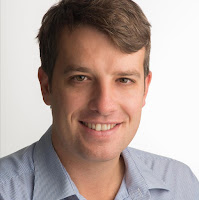 |
| Follow on Twitter as @jgro_the |
 |
| Big show: Geof Hill says supervisors should advocate styles suited to students. Photo: iStock |
The PhD viva is notorious for being a nerve-racking experience, but imagine the butterflies if you had to deliver your doctoral defence in the form of song and dance.
That may seem like a far-fetched – and, frankly, terrifying – proposition, but the days when all doctoral students simply handed over a sheaf of spiral-bound paper ahead of their viva are long gone.
With practitioners from a wide range of artistic and creative professional backgrounds now seeking doctoral qualifications, many research supervisors are asking whether the traditional model of PhD assessment still fits academia in the 21st century.
Geof Hill, reader in education at Birmingham City University, who performs Stephen Sondheim musical songs in class, believes that doctoral supervisors – particularly in artistic fields – should consider whether their students should present their work in more innovative ways that are aligned with their subject.
So could a cabaret performance really count as a PhD? Dr Hill believes so.
Indeed, he used song and dance when taking his own doctoral degree in 2002, despite it causing a “ruckus” at the time.
“Someone working in a conservatoire with an opera background might traditionally be asked to present their doctoral research in a written format, but highly creative people used to making things fun might want to think about a different research methodology,” said Dr Hill, one of the speakers at the UK Council for Graduate Education’s annual conference in Liverpool, which takes place on 4-5 July.
“Throughout history, the idea of research has changed – it used to concern experiments on human bodies and then work done in laboratories, but performance is now counted as research,” he explained.
Doctoral students might also present their work in the form of a video documentary that explores aspects of their research subject, thereby making the issues discussed far more accessible to a wider audience than a traditional PhD thesis wedged on a dusty library shelf, Dr Hill said.
“You might have a potter who would explain the certain choices made in the firing process – the different chemicals or methods used – which is a different way of thinking about research,” he said.
A recent photographic exhibition featuring images of heart bypass patients was another good example of communicating the results of research, which presented the human side of medical interventions more effectively than simply publishing a journal paper, Dr Hill said.
“The explosion of new technologies also means many more things are possible,” he added, saying that some research should be communicated via tweeting.
He recognises that the approach is unconventional and contested, but research supervisors should be willing to advocate more innovative styles that are suited to the talents of their students.
“I’ve been an educator for almost 40 years and it seems like I’ve been on the battlefield fighting for different approaches to research and teaching for this time,” Dr Hill said.
“It’s important that people understand that research is a highly disputed territory, but if you can find a way of drawing out students’ strengths, then you should argue for something different,” he added.
Taking an unusual approach to PhD study makes the need to demonstrate academic rigour even more important, Dr Hill adds.
Read more...
Source: Times Higher Education










